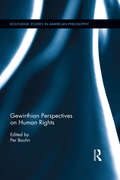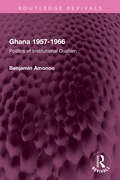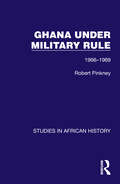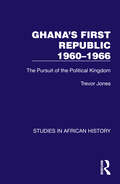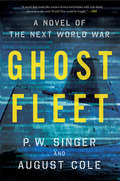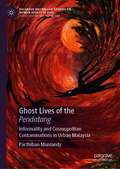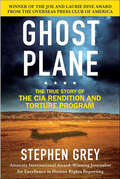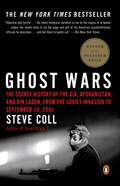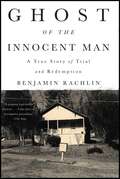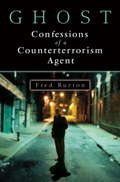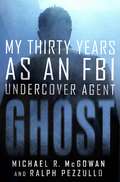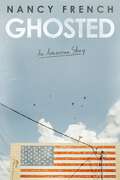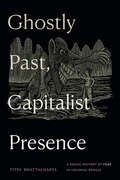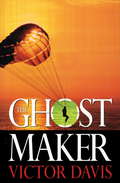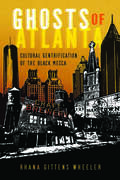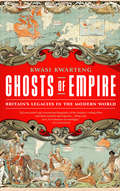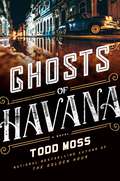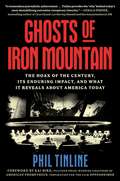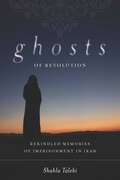- Table View
- List View
Gewaltfreiheit zwischen Anspruch und Realität: Grundsatzfragen • Band 6 (Gerechter Frieden)
by Angelika Dörfler-Dierken Hendrik StoppelDas Bekenntnis zum Weg der Gewaltfreiheit nimmt in der Kundgebung der EKD-Synode 2019 „Kirche auf dem Weg der Gerechtigkeit und des Friedens“ den ersten Rang unter den Aussagen zum Thema Frieden ein. Aber der kirchliche Diskurs kennt auch eine zweite Option, die unter bestimmten Bedingungen notwendig werden kann: den Gebrauch von „rechtserhaltender Gewalt“, der gerade den Frieden herstellen oder wahren soll. In diesem Spannungsfeld stehen die kirchliche Militärseelsorge und Soldat*innen mit kirchlicher Bindung. Die verschiedenen Voten und deren Grundlegungen und Konsequenzen werden in diesem Band diskutiert.
Gewirthian Perspectives on Human Rights (Routledge Studies in American Philosophy)
by Per BauhnGewirth’s theory of human rights has made a major contribution to philosophy. In this edited collection, contributors from a broad range of disciplines discuss the theoretical and practical application of Gewirthian theory to current world issues. Case studies highlight mental health, the LGBT community, intellectual disabilities, global economic inequality, and market instability to provide a truly interdisciplinary study. This important contribution to human rights scholarship provides a platform for further discussion of Gewirthian theory. It will be of interest to those researching moral, legal, and political philosophy, as well as policy makers, social workers, and medical staff.
Gewollte Kinderlosigkeit: Theoretische Einordnung und empirische Erkenntnisse zur Entscheidung von Frauen für ein Leben ohne Kinder
by Claudia Rahnfeld Annkatrin HeuschkelKernanliegen des Buches ist es, das Thema der gewollten und ungewollten Kinderlosigkeit fachlich konkreter zu trennen und das Phänomen der gewollten Kinderlosigkeit empirisch zu untersetzen. Das individuelle Lebenskonzept wirkt sich gleichermaßen auf die Möglichkeiten der persönlichen Selbstverwirklichung sowie das System der Gesellschaft, deren Organisation und Funktion aus. Wissenschaftliche Studien zu den Ursachen gewollter Kinderlosigkeit sind bisher jedoch kaum vorhanden. Die quantitative Befragung von über 1000 Frauen, bei denen eine bewusste Entscheidung für ein Leben ohne Kinder vorliegt, schließt die bestehende Forschungslücke. Die vorliegende Untersuchung trägt zu mehr Transparenz, Akzeptanz sowie Sensibilität gegenüber den Individuen sowie deren Lebensform bei und erweitert die sozialwissenschaftlichen Erkenntnisse zu weiblicher Selbstbestimmung, modernen Lebensmodellen und alternativen Familienformen.
Ghana (The Evolution of Africa's Major Nations)
by Barbara Aoki PoissonGhana, located on the Atlantic coast of West Africa, was once known as the Gold Coast because of its vast deposits of this precious mineral. In the 14th and 15th centuries Ghana was the home of powerful African kingdoms that traded both gold and slaves. Ghana's wealth attracted Europeans, and the British eventually incorporated the land into their empire. In 1957 Ghana became one of the first African countries to win independence--an event that inspired nationalist movements throughout the rest of the continent. Although most of Ghana's history as an independent nation has been marked by political strife, the situation seems to be improving. The country is now considered to be a stable democracy, as government power has been peacefully transferred several times since 2001.
Ghana 1957-1966: Politics of Institutional Dualism (Routledge Revivals)
by Benjamin AmonooFirst Published in 1981, Ghana 1957-1966 presents a comprehensive overview of the period when the Convention People’s Party (CPP) ruled Ghana under a one party system. It covers the intricate relationship which grew up between CPP and the Civil Service in Ghana at national, regional, district and local levels. Dr Amonoo argues that the process of adapting the civil service institutions to the purposes and orientation of the CPP leadership was never completed, and that the result was a duality of institutions in the governmental administrative machinery. One was politically conditioned and orientated to serve the purposes of the CPP leadership, while the other remained rigidly bureaucratic and distant from the party. Both arrangements created problems for the CPP regime and thus it was that Ghanaian government and politics during this period lacked a single sense of purpose. The author stresses that the empirical realities need to be fully accounted in any attempt to explain government and politics of the CPP period. This book is a must read for scholars and researchers of African studies, African history, and African politics.
Ghana Under Military Rule: 1966-1969
by Robert PinkneyOriginally published in 1972, this book examines the way in which the military/police regime in Ghana, which overthrew President Nkrumah in February 1966, performed two overlapping tasks – those of establishing itself as a recognised government, and of pursuing its chosen objective of eventually restoring democratic civilian rule. The author, who conducted interviews with people at many levels in Ghanaian politics, including the majority of members of General Ankrah’s Cabinet, traces the progress of the military regime, showing that it was successful in building up public support and opening up new political avenues, but that it was unable to make any fundamental economic changes. He argues that to understand the operation of the military government, it is necessary to look at its relationship with most influential sections of the civilian population, and clearly demonstrates that without the co-operation of such civilians, the new regime could never have achieved as much as it did.
Ghana's First Republic 1960-1966: The Pursuit of the Political Kingdom
by Trevor JonesOriginally published in 1976, this book describes one of the most important and colourful episodes in black Africa’s twentieth-century history. Kwame Nkrumah, the dynamic leader who brought Ghana to independence in 1957, abandoned the Westminster model of representative government to which his country once seemed so well suited. He reached out towards the goals of Pan-Africanism and socialism, emphasizing the primacy of political action to regenerate his people and their continent. But his vision of the ‘political kingdom’ led quickly to the destruction of his Republic and his hopes. Using the (then) latest evidence to examine political life, parliament, civil service, farmers, workers and army in Ghana’s first Republic, the author argues that Nkrumah’s experiment failed because his rule was strong enough to distort traditional values but was unable to transform them. The result was a bizarre and paralysing mixture of despotism and anarchy which defied political analysis in conventional terms.
Ghatsutra: घातसूत्र
by Deepak Karanjikar'घातसूत्र' ही कादंबरी नाही. इतिहास नाही. अर्थशास्त्रीय - राजकीय ग्रंथ नाही. प्रबंध नाही. आंतरराष्ट्रीय घडामोडींचे संकलन नाही. तत्वज्ञान नाही. आध्यात्मिक प्रवचन नाही. वा क्लिष्ट नाही चिंतनाचे तथाकथित निरूपण नाही. दीपक करंजीकर यांनी या सर्वांच्या पलीकडे नेणारा, म्हटले तर चित्तथरारक, सर्वंकष आणि त्याचवेळेस व्यासंगी उद्बोधन - प्रबोधन करणारा, पण एक उत्कंठापूर्ण, अर्वाचीन इतिहासाने सजलेला, समकालीन जागतिक शोधग्रंथ लिहिला आहे. सध्याच्या विलक्षण गुंतागुंतीच्या, आर्थिक अरिष्टाच्या, संभाव्य प्रलयसमान भासणाऱ्या आंतरराष्ट्रीय प्रवाहांचा घेतलेला हा वेधक शोध आहे. अगदी सुरुवातीपासून शेवटपर्यंत वाचकांचे मन खिळवून ठेवतानाच, त्याला प्रस्थापित जगाचे भान यावे म्हणून दिशादर्शन करणारे हे लेखन कोणत्याही विशिष्ट ग्रंथशाखेत मोडत नसले तरी त्यात इतिहास, भूगोल, अर्थकारण, राजकारण, समाजकारण, तत्वज्ञान हे सर्व रहस्यमयतेने येते. वैचारिक आत्मविश्वासही देते!
Ghost Fleet: A Novel of the Next World War
by P. W. Singer August Cole"A novel that reads like science fiction but bristles with rich detail about how the next World War could be fought." --Vice"A modern-day successor to tomes such as The Hunt for Red October from the late Tom Clancy." --USA Today What Will World War III Look Like? Ghost Fleet is a page-turning imagining of a war set in the not-too-distant future. Navy captains battle through a modern-day Pearl Harbor; fighter pilots duel with stealthy drones; teenage hackers fight in digital playgrounds; Silicon Valley billionaires mobilize for cyber-war; and a serial killer carries out her own vendetta. Ultimately, victory will depend on who can best blend the lessons of the past with the weapons of the future. But what makes the story even more notable is that every trend and technology in book--no matter how sci-fi it may seem--is real. The debut novel by two leading experts on the cutting edge of national security, Ghost Fleet has drawn praise as a new kind of technothriller while also becoming the new "must-read" for military leaders around the world. "A wild book, a real page-turner." --The Economist "Ghost Fleet is a thrilling trip through a terrifyingly plausible tomorrow. This is not just an excellent book, but an excellent book by those who know what they are talking about. Prepare to lose some sleep."--D. B. Weiss, writer of HBO's Game of Thrones "It's exciting, but it's terrifying at the same time."--General Robert Neller, commandant of the U.S. Marine Corps
Ghost Lives of the Pendatang: Informality and Cosmopolitan Contaminations in Urban Malaysia (Palgrave Macmillan Studies on Human Rights in Asia)
by Parthiban MuniandyThis book is an ethnographic study of migrants, refugees and ‘temporary’ people in Malaysia, incorporating narratives, personal stories, and observations of everyday life in Kuala Lumpur and Georgetown, Penang. Rather than focusing on specific migrant communities or refugee ‘camps’, the book takes subaltern cosmopolitanism as its central lens to look at how different and diverse communities of non-citizen ‘pendatang’ (aliens) co-habit, work and live together in Malaysia. Urban centers in Malaysia offer the space for informality that allow stateless and undocumented people to seek out opportunities, while also finding ways to assimilate or even ‘disappear’ into the fabric of society. The book focuses on the notion of ‘contaminations’, rather than migration or migrants, to underscore one of the most important findings of the ethnographic study – that migrant life in Malaysia is critically integral, embedded and interwoven into the everyday life in the city - shaping and affecting all aspects of daily life from production and supply chains, food service networks, cultural and religious practices, waste and recycling work, to more intimate and private contexts such as romantic relationships, family life and sex-work. Hybridity, inter-mixing and bastardization are part and parcel of everyday urbanism in KL and Penang – these ‘contaminating elements’ challenge and disrupt categories of the ‘national’ and categories such as insider/outsider, national purity, and politically constructed divisions between ethnic and racial groups. The book thus relies upon detailed ethnographic narratives curated over a decade of study, offering students interested in fieldwork research insights into the types of engagements and commitments necessary for helping build the complex, uneasy and destabilizing knowledge that characterizes critical ethnography.
Ghost Plane: The True Story of the CIA Rendition and Torture Program
by Stephen GreyFor the first time, Stephen Grey tells the inside story of international prisons sanctioned by the U.S. Government and used by the CIA to hold and torture people suspected of terrorism. Using contacts deep inside the U.S. Government, Grey reveals how deeply the Bush administration is involved in the program and questions the truth of statements made by Secretary of State Condoleeza Rice. He also shines a spotlight on the heads of European nations who turned a blind eye to the program when it showed up in their back yards. Grey takes an unflinching look at a horrendous practice that scorns Geneva Convention rules and is powered by corruption at the highest levels of governments worldwide. Through his unprecedented access to CIA flight records and dozens of sources at the senior levels of the current administration, Grey has produced a story of flight plans, extreme torture, and the clash of religions and governmental posturing that goes on today. Ghost Plane tells the stories of individuals abducted at airports around the world and transported for interrogation and torture on a fleet of leased planes manned by CIA operatives. Grey paints a disburing ethical picture of the war on terror and lays the responsibility for abduction and torutre at the doorstep of Washington, D.C.
Ghost Wars: The Secret History of the CIA, Afghanistan, and bin Laden, from the Soviet Invas ion to September 10, 2001
by Steve CollWinner of the 2005 Pulitzer PrizeThe explosive first-hand account of America's secret history in AfghanistanWith the publication of Ghost Wars, Steve Coll became not only a Pulitzer Prize winner, but also the expert on the rise of the Taliban, the emergence of Bin Laden, and the secret efforts by CIA officers and their agents to capture or kill Bin Laden in Afghanistan after 1998.
Ghost of the Innocent Man: A True Story of Trial and Redemption
by Benjamin RachlinDuring the last two decades, more than two thousand American citizens have been wrongfully convicted. Ghost of the Innocent Man brings us one of the most dramatic of those cases and provides the clearest picture yet of the national scourge of wrongful conviction and of the opportunity for meaningful reform.When the final gavel clapped in a rural southern courtroom in the summer of 1988, Willie J. Grimes, a gentle spirit with no record of violence, was shocked and devastated to be convicted of first-degree rape and sentenced to life imprisonment. Here is the story of this everyman and his extraordinary quarter-century-long journey to freedom, told in breathtaking and sympathetic detail, from the botched evidence and suspect testimony that led to his incarceration to the tireless efforts to prove his innocence and the identity of the true perpetrator. These were spearheaded by his relentless champion, Christine Mumma, a cofounder of North Carolina's Innocence Inquiry Commission. That commission-unprecedented at its inception in 2006-remains a model organization unlike any other in the country, and one now responsible for a growing number of exonerations.With meticulous, prismatic research and pulse-quickening prose, Benjamin Rachlin presents one man's tragedy and triumph. The jarring and unsettling truth is that the story of Willie J. Grimes, for all its outrage, dignity, and grace, is not a unique travesty. But through the harrowing and suspenseful account of one life, told from the inside, we experience the full horror of wrongful conviction on a national scale. Ghost of the Innocent Man is both rare and essential, a masterwork of empathy. The book offers a profound reckoning not only with the shortcomings of our criminal justice system but also with its possibilities for redemption.
Ghost: Confessions of a Counterterrorism Agent
by Fred BurtonFor decades, Fred Burton, a key figure in international counterterrorism and domestic spycraft, has secretly been on the front lines in the fight to keep Americans safe around the world. Now, in this hard-hitting memoir, Burton emerges from the shadows to reveal who he is, what he has accomplished, and the threats that lurk unseen except by an experienced, world-wise few. In the mid-eighties, the idea of defending Americans against terrorism was still new. But a trio of suicide bombings in Beirut–including one that killed 241 marines and forced our exit from Lebanon–had changed the mindset and mission of the Diplomatic Security Service (DSS), the arm of the State Department that protects U. S. embassy officials across the globe. Burton, a member of DSS’s tiny but elite Counterterrorism Division, was plunged into a murky world of violent religious extremism spanning the streets of Middle Eastern cities and the informant-filled alleys of American slums. From battling Libyan terrorists and their Palestinian surrogates to having facing down hijackers, hostages, and Hezbollah double agents, Burton found himself on the front lines of America’s first campaign against Terror. In this globe-trotting account of one counterterrorism agent’s life and career, Burton takes us behind the scenes to reveal how the United States tracked Libya-linked master terrorist Abu Nidal; captured Ramzi Yusef, architect of the 1993 World Trade Center bombing; and pursued the assassins of major figures including Yitzhak Rabin, Meir Kahane, and General Muhammad Zia-ul-Haq, the president of Pakistan–classic cases that have sobering new meaning in the treacherous years since 9/11. Here, too, is Burton’s advice on personal safety for today’s most powerful CEOs, gleaned from his experience at Stratfor, the private firm Barron’s calls “the shadow CIA. ” Told in a no-holds-barred, gripping, nuanced style that illuminates a complex and driven man,Ghostis both a riveting read and an illuminating look into the shadows of the most important struggle of our time. Praise for GHOST “With spy thriller suspense and the clarity of a police report, former special agent Burton’s State Department saga reads like a brewing-storm prequel to the current war on terror . . . Of obvious interest to anyone with an eye on world affairs. . . . Most striking is the material’s relevance twenty years later; Burton’s clashes with Hezbollah in Beirut and prickly diplomacy with Iran could almost be pulled from present-day newspapers”—Publisher's Weekly “In many ways, this book reads like a le Carré spy novel: it’s not flashy, not filled with pyrotechnics, not full of chase scenes and derring-do. Rather, it’s the story of a working man whose job involved trying to prevent people from attacking his country. Shorn of ideological rights and wrongs, it’s a fascinating look at what counterterrorism really means on a day-to-day level. ”—Booklist “The world of counterterrorism is like that old jigsaw puzzle in the back of the closet: its many missing pieces and extra parts jumbled in from other puzzles make it almost impossible to assemble. But in Ghost, Fred Burton manages to join together enough pieces to give us a discerning look at that world. This is a story, told in human terms, that will help make sense of the great puzzle of our times. ”—Eric L. Haney, author ofInside Delta Forceand executive producer ofThe Unit “Burton’s memoir of fighting the defensive fight against the burgeoning terrorist threat in the 1980s and beyond is a revealing personal journal of the stress and boredom involved in putting the
Ghost: My Thirty Years as an FBI Undercover Agent
by Ralph Pezzullo Michael R. McGowanThe explosive memoir of an FBI field operative who has worked more undercover cases than anyone in history.Within FBI field operative circles, groups of people known as “Special” by their titles alone, Michael R. McGowan is an outlier. 10% of FBI Special Agents are trained and certified to work undercover. A quarter of those agents have worked more than one undercover assignment in their careers. And of those, less than 10% of them have been involved in more than five undercover cases. Over the course of his career, McGowan has worked more than 50 undercover cases. In this extraordinary and unprecedented book, McGowan will take readers through some of his biggest cases, from international drug busts, to the Russian and Italian mobs, to biker gangs and contract killers, to corrupt unions and SWAT work. Ghost is an unparalleled view into how the FBI, through the courage of its undercover Special Agents, nails the bad guys. McGowan infiltrates groups at home and abroad, assembles teams to create the myths he lives, concocts fake businesses, coordinates the busts, and helps carry out the arrests. Along the way, we meet his partners and colleagues at the FBI, who pull together for everything from bank jobs to the Boston Marathon bombing case, mafia dons, and, perhaps most significantly, El Chapo himself and his Sinaloa Cartel.Ghost is the ultimate insider's account of one of the most iconic institutions of American government, and a testament to the incredible work of the FBI.
Ghosted: An American Story
by Nancy FrenchA riveting look inside a life of poverty, success, and the inner circles of political influence--from the foothills of Appalachia all the way to the White House.New York Times bestselling ghostwriter Nancy French is coming out of the shadows to tell her own incredible story.Nancy's family hails from the foothills of the Appalachians, where life was dominated by coal mining, violence, abuse, and poverty. Longing for an adventure, she married a stranger, moved to New York, and dropped out of college. In spite of her lack of education, she found success as a ghostwriter for conservative political leaders. However, when she was unwilling to endorse an unsuitable president, her allies turned on her and she found herself spiritually adrift, politically confused, and occupationally unemployable.Republicans mocked her, white nationalists targeted her, and her church community alienated her. But in spite of death threats, sexual humiliation, and political ostracization, she learned the importance of finding her own voice--and that the people she thought were her enemies could be her closest friends.A poignant and engrossing memoir filled with humor and personal insights, Ghosted is a deeply American story of change, loss, and ultimately love.
Ghostly Past, Capitalist Presence: A Social History of Fear in Colonial Bengal
by Tithi BhattacharyaIn Ghostly Past, Capitalist Presence, Tithi Bhattacharya maps the role that Bengali ghosts and ghost stories played in constituting the modern Indian nation, and the religious ideas seeded therein, as it emerged in dialogue with European science. Bhattacharya introduces readers to the multifarious habits and personalities of Bengal’s traditional ghosts and investigates and mourns their eventual extermination. For Bhattacharya, British colonization marked a transition from the older, multifaith folk world of traditional ghosts to newer and more frightening specters. These "modern" Bengali ghosts, borne out of a new rationality, were homogeneous specters amenable to "scientific" speculation and invoked at séance sessions in elite drawing rooms. Reading literature alongside the colonial archive, Bhattacharya uncovers a new reordering of science and faith from the middle of the nineteenth century. She argues that these shifts cemented the authority of a rising upper-caste colonial elite who expelled the older ghosts in order to recast Hinduism as the conscience of the Indian nation. In so doing, Bhattacharya reveals how capitalism necessarily reshaped Bengal as part of the global colonial project.
Ghostmaker
by Victor DaviesIn the great tradition of DAY OF THE JACKAL, a chillingly tense tale of assassination and betrayal.Captain Jack Boulder was his regiment's rifle champion, and runner-up for the Queen's Prize. Now, thanks to a spot of unauthorized freelance activity in Northern Ireland, he's just plain mister, running a gun club in the City.So when the spooks send him £500 in the post just for picking up the phone and listening, he listens. In spite of the ruthlessness with which the army dumped him, the notion of serving his country still means something to him, and of course it's flattering to be told that you're the only man for the job...So begins a chillingly tense adventure of assassination and betrayal, in the course of which Jack does what he does best, only to discover that the enemy is not who he had been led to believe, and that not only his life but those of his wife and sons are seriously at risk. Authentically detailed and blisteringly fast-paced, 'The Ghostmaker' is a highly accomplished debut.
Ghosts Over the Boiler: Voices from Alabama's Death Row
by Project Hope to Abolish the Death PenaltyFrom a donated typewriter that frequently breaks down, people on Alabama's death row have literally cut and pasted together a newsletter, On Wings of Hope, for the last three decades to educate the public about the death penalty. This newsletter, a labor of love, documents decades of work, wisdom, activism, and lived experience of those who have been executed, or are scheduled to be executed, by the state of Alabama. The writings also chart the changing policy and practice of capital punishment in the state that sentences more people to death per capita than any other in the US.Ghosts Over the Boiler is a curated collection of poetry, visual art, photographs, essays, creative writings, and other archival materials that have emerged from Alabama's death row from the organization Project Hope to Abolish the Death Penalty (PHADP). This group was founded at Holman Correctional Facility and has been operating autonomously since 1989 toward its mission to abolish the death penalty in Alabama and in the nation.
Ghosts of Atlanta: Cultural Gentrification of the Black Mecca
by Rhana Gittens WheelerThe Black community of Atlanta, a city once heralded as the “Black Mecca of the South,” is currently under threat of dislocation by cultural gentrification. Amid the city’s urban renaissance, residents face rising property values, taxes, and rents, as well as the more insidious loss of a collective identity and belonging. In Ghosts of Atlanta: Cultural Gentrification of the Black Mecca, author Rhana Gittens Wheeler examines the fading echoes of African American memory and historical narratives in Atlanta.As encroaching investors and business owners enter historically Black areas, many have sought to rebrand entire neighborhoods, making those spaces more palatable to would-be gentrifiers and less recognizable to former residents. Exploring material sites of meaning, including monuments, museums, art exhibitions, and more, Gittens Wheeler unearths tensions between the city’s proud legacy as a hub of political and economic equality for Black Americans and the unsettling reality of cultural displacement. Gittens Wheeler interrogates and critiques recent developments in the city, including the Atlanta BeltLine, craft breweries, and attractions that romanticize the civil rights movement.Drawing inspiration from literary giants like Ralph Ellison and Toni Morrison, as well as contemporary voices like 2 Chainz and T.I., Gittens Wheeler weaves together elements of rhetorical criticism, archival studies, and interviews to confront pressing questions. What happens when symbols of cultural memory and identity are uprooted? How do residents grapple with the erasure of their narratives, forced to feel unwelcome in their own neighborhoods? In addressing these questions, Gittens Wheeler uncovers the complex dynamics of shared spaces, exposing both the pain of displacement and the possibility of redemption.A reverberating call to action, Ghosts of Atlanta: Cultural Gentrification of the Black Mecca demonstrates that Black stories, inscribed in space, are necessary for bringing a moral reckoning to the heart of America’s national identity.
Ghosts of Empire: Britain's Legacies in the Modern World
by Kwasi KwartengKwasi Kwarteng is the child of parents whose lives were shaped as subjects of the British Empire, first in their native Ghana, then as British immigrants. He brings a unique perspective and impeccable academic credentials to a narrative history of the British Empire, one that avoids sweeping judgmental condemnation and instead sees the Empire for what it was: a series of local fiefdoms administered in varying degrees of competence or brutality by a cast of characters as outsized and eccentric as anything conjured by Gilbert and Sullivan. The truth, as Kwarteng reveals, is that there was no such thing as a model for imperial administration; instead, appointees were schooled in quirky, independent-minded individuality. As a result the Empire was the product not of a grand idea but of often chaotic individual improvisation. The idosyncracies of viceroys and soldier-diplomats who ran the colonial enterprise continues to impact the world, from Kashmir to Sudan, Baghdad to Hong Kong.
Ghosts of Havana
by Todd MossA timely international thriller by the former deputy assistant secretary of state and bestselling author. When four American sport fishermen stray into Cuban waters and are promptly arrested by Castro's navy, State Department crisis manager Judd Ryker finds himself called in to negotiate their release. But the more Ryker digs in to the situation, the more things he discovers that just don't seem to fit, especially now, with relations between the United States and Cuba supposedly thawing. Who are these men really, and what were they doing there? What is Ryker's actual mission, and what is his own government hiding from him? Some people want the new initiative to succeed. Others want to stop it at any cost. Still others see it as an opportunity for something much more radical. The common factor for every one of them: the time to act is right this minute. The ghosts of Havana are walking, and Ryker is caught in the middle of them all.
Ghosts of Havana
by Todd MossA timely international thriller by the former deputy assistant secretary of state and bestselling author. When four American sport fishermen stray into Cuban waters and are promptly arrested by Castro’s navy, State Department crisis manager Judd Ryker finds himself called in to negotiate their release. But the more Ryker digs in to the situation, the more things he discovers that just don’t seem to fit, especially now, with relations between the United States and Cuba supposedly thawing. Who are these men really, and what were they doing there? What is Ryker’s actual mission, and what is his own government hiding from him? Some people want the new initiative to succeed. Others want to stop it at any cost. Still others see it as an opportunity for something much more radical. The common factor for every one of them: the time to act is right this minute. The ghosts of Havana are walking, and Ryker is caught in the middle of them all.
Ghosts of Iron Mountain: The Hoax of the Century, Its Enduring Impact, and What It Reveals About America Today
by Phil TinlineA compelling work of investigative journalism that explores the surprising origins and hidden ramifications of an epic late 1960s hoax, perpetrated by cultural luminaries, including Victor Navasky and E.L. Doctorow. For readers curious about the surprising connections between John F. Kennedy, Oliver Stone, Timothy McVeigh, Alex Jones, and Donald Trump.Delve into the labyrinth of America&’s conspiracy culture with this investigative masterpiece that unearths the roots of our era&’s most potent myths. In 1966, amid unrest over the Vietnam War and the alarming growth of the military-industrial complex, little-known writer Leonard Lewin was approached by a group of ingenious satirists on the Left to concoct a document that would pretend to ratify everyone&’s fears that the government was deceiving the public. Devoting more than a year to the project, Lewin constructed a fiction (passed off as the honest truth) that a government-run Study Group had been charged with examining the &“cost of peace,&” setting its first meetings in the very real Iron Mountain nuclear bunker in upstate New York (which lent the resulting book, Report from Iron Mountain, its name). In Lewin&’s telling, this gathering of the nation&’s academic elite concluded that suspending war would be disastrous, forcing all sorts of bizarre measures to compensate. Lewin didn&’t realize it at the time, but he&’d created a narrative that fed the interests of both ends of the political spectrum—by promoting the idea that the government uses centralized power for evil. What fascinates about Phil Tinline&’s revelation-filled recreation of that ingenious hoax is seeing how it explodes into America&’s consciousness, dominates media reports, and sends government officials scrambling. And then, subsequently, how Lewin&’s fabrication is adopted by a seemingly endless string of extremist organizations which view it as supporting their ideology. In this riveting—and, at times, chilling—tale of a deception that refuses to die is an unsettling warning about how, in contemporary times, a hoax may no longer be a hoax if it can be used to recruit followers to a cause.
Ghosts of Revolution: Rekindled Memories of Imprisonment in Iran
by Shahla TalebiIn this powerful memoir, Talebi (religious studies, Arizona State U. ) recounts her time as a political prisoner in her homeland, Iran. First a prisoner of the Shah during his last years in power, then (for a much longer time) held in the Islamic Republic's infamous Nevin Prison, the author sacrificed a decade of her life for her political activities. Talebi shares with readers how she and other prisoners withstood their own suffering and retained hope and humanity in those dark years, often with brutal honesty. While this book will clearly have great appeal for readers interested in Iran's recent history, it also has much to say to anyone concerned with the issues of government-sanctioned torture and violence in any country. Annotation ©2011 Book News, Inc. , Portland, OR (booknews. com)

